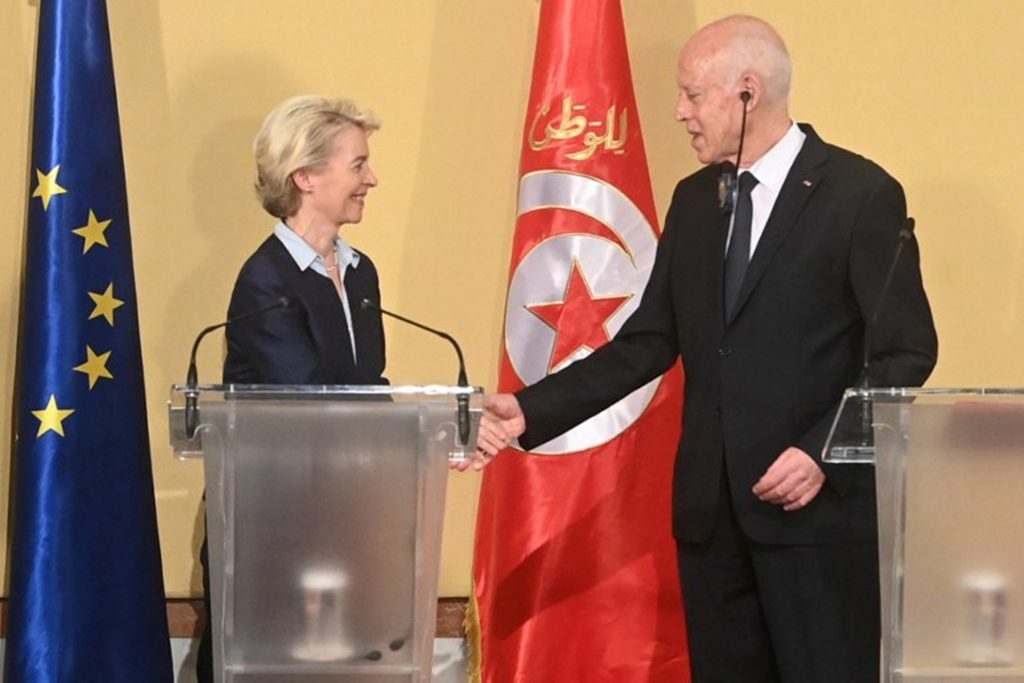Tunisian President Kais Saied announced on Monday evening he is rejecting funds allocated by the European Union to Tunisia, calling it a "charity" and a "derisory" amount that would run counter to the agreement reached in July.
The European Commission announced on 22 September that it would begin to allocate funds under the agreement with Tunisia in order to reduce the number of migrants arriving from there.
The Commission specified that of the €105 million in aid provided for under this agreement to combat irregular immigration, some €42 million would be "rapidly allocated". To this must be added €24.7 million already earmarked under ongoing cooperation programmes.
"Tunisia, which accepts cooperation, does not accept anything resembling charity or favour, because our country and our people do not want sympathy and do not accept it when it is disrespectful," he said, according to a Presidency statement.
"Consequently, Tunisia refuses what has been announced in recent days by the EU," said Saied, who was receiving his foreign minister, Nabil Ammar.
He explained that the refusal was "not because of the derisory amount … but because this proposal goes against" the agreement signed in Tunis and "the spirit that prevailed at the Rome conference" in July.
Related News
- Tunisian President denies entry to another EU delegation
- Investigation opened into the EU-Tunisia migration deal amid Lampedusa chaos
- 'Unprecedented': Tunisia refuses entry to MEPs months after EU migration deal
According to the European Commission, the aid is to be used in part to refurbish boats used by the Tunisian coastguard and to cooperate with international organisations both for the "protection of migrants" and for operations to return these exiles from Tunisia to their countries of origin.
The memorandum of understanding between Tunisia and the EU also provides for direct budgetary aid of €150 million in 2023 at a time when the country is facing serious economic difficulties.
Finally, Saied added that his country was "doing everything possible to dismantle criminal human trafficking networks."
Tunisia is, along with Libya, the main point of departure for thousands of migrants who cross the central Mediterranean to Europe, arriving in Italy.

